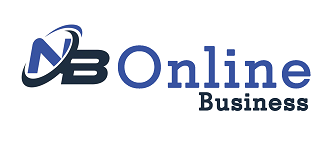For many startups and small businesses in Malaysia, payroll can feel like a never-ending chore. Between calculating salaries, deducting EPF and SOCSO, keeping up with PCB tax rates, and meeting monthly deadlines, payroll can eat up valuable hours that could be spent growing the business.
That’s where automated payroll software in Malaysia comes in. More than just a convenience, it’s a powerful tool that helps Malaysian startups and SMEs save time, reduce costly errors, and stay on the right side of compliance, without breaking the bank.
If you’re still running payroll manually or juggling spreadsheets every month, here’s why automation might be one of the best decisions your business can make.
1. It Saves You Hours Every Month
Time is one of the most valuable resources for any small business, and payroll is one of the biggest time sinks.
Manual payroll requires:
- Calculating work hours and overtime
- Factoring in allowances, deductions, and bonuses
- Updating tax tables and statutory contributions
- Preparing payslips and reports
- Submitting documents to LHDN, EPF, SOCSO, and EIS
With automated payroll software like Million, most of these steps are done for you. Once you’ve set up your employee profiles and payment rules, you can process payroll in just a few clicks. No more late nights before payday. No more second-guessing formulas in Excel.
2. It Reduces Costly Errors
Mistakes in payroll don’t just frustrate employees — they can trigger penalties, extra admin work, or even legal trouble if left unchecked.
Some of the most common manual payroll mistakes include:
- Incorrect tax deductions
- Miscalculating overtime or leave pay
- Missing statutory contribution deadlines
- Using outdated tax tables
Automated payroll software significantly reduces these risks by:
- Performing accurate, rule-based calculations
- Keeping statutory rates updated automatically
- Reminding you of submission deadlines
- Generating error-free payslips and reports
Many systems also log changes and give you an audit trail — a handy feature if your business ever faces a review or tax audit.
3. It Helps You Stay Compliant with Malaysian Laws
Malaysia’s payroll regulations are detailed and often change, especially with the rollout of LHDN’s e-invoicing framework and the increasing push toward digitalisation.
A good payroll system in Malaysia should help you:
- Stay updated with EPF, SOCSO, EIS, and PCB contribution rules
- Generate required forms (EA, E/CP8D, etc.) for year-end submissions
- Link with e-Invoicing and accounting tools, so payroll costs are properly reflected in your books
- Easily retrieve historical data if needed for inspections or audits
If you’re based in a business hub like Kuala Lumpur, where competition is tight and professional standards are expected, being on top of compliance isn’t optional — it’s a sign your business is run well.
4. It Improves Security and Confidentiality
Storing payroll data in physical files or unsecured spreadsheets comes with serious risks. Employee salaries, IC numbers, and bank account details are sensitive information, and mishandling them can have legal consequences.
Automated payroll platforms often include:
- Secure cloud storage
- Role-based access control (so only authorised people can view sensitive data)
- Encrypted backups
- Automated recordkeeping for up to 7 years
This protects both your employees and your business, and gives you peace of mind that payroll data isn’t going to disappear or land in the wrong hands.
5. It Makes Employee Management Easier
Modern payroll software doesn’t just crunch numbers — it also improves how you interact with your team.
Many systems come with features like:
- Self-service portals, where employees can download payslips and update personal info
- Leave tracking, so annual leave, MCs, and public holidays are reflected in payroll
- Integration with time and attendance systems, removing the need for double data entry
This creates a smoother, more transparent experience for everyone involved — and it reduces the back-and-forth HR queries you have to deal with every month.
6. It Scales as You Grow
Most startups begin with a lean team, but growth happens fast. Before you know it, you’re hiring your tenth employee and juggling part-timers, contractors, or remote workers.
Manual payroll systems don’t scale well — they just create more admin work.
Automated payroll systems, however, can grow with you:
- Add new employees easily
- Handle different pay structures (e.g. hourly vs. salaried)
- Manage multiple payroll cycles if needed
- Generate reports for investors or financial advisors
If you’re serious about growing your business — whether you’re in Kuala Lumpur or expanding to other states — having scalable, reliable systems in place is key.
Final Thoughts
For Malaysian startups and SMEs, automated payroll software isn’t just a time-saver — it’s a business enabler.
It helps you:
- Save hours each month
- Stay compliant with ever-changing local regulations
- Reduce costly errors
- Protect sensitive information
- Keep your employees happy and informed
- And focus on the bigger picture: growing your business
In a fast-moving market, the last thing you want is to be bogged down by paperwork and payroll stress.
So if you’re still managing payroll manually, now’s the time to explore the options available. Many payroll systems now offer Malaysia-specific features tailored for local businesses.
Because when your payroll is smooth and stress-free, everything else in your business runs better, too.







